Nothing Liberates Our Greatness
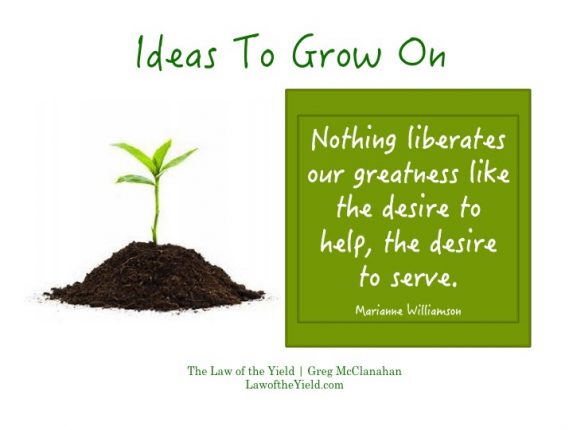
This video below is more of an audio with a single still image. Once you pass any YouTube ads, you can listen to this while you are relaxing or doing something else.
It’s very much worth hearing and sharing.
Rush Limbaugh delivers the message and does it well. In it, he correctly references George Washington’s first Thanksgiving Proclamation (linked in full below).
Part of what we ought to be thankful for is living in a free society that protects our freedoms, including the freedom of religion. Rush does a pretty good job of explaining that the early Plymouth experiment by the Pilgrims was a failure of a system much like modern socialism.
The Pilgrims learned from their costly mistakes, as many died that first winter. Yes, Native Americans were an important part of that story. But the lessons include the overlooked one – that free markets and free people work better than socialism does.
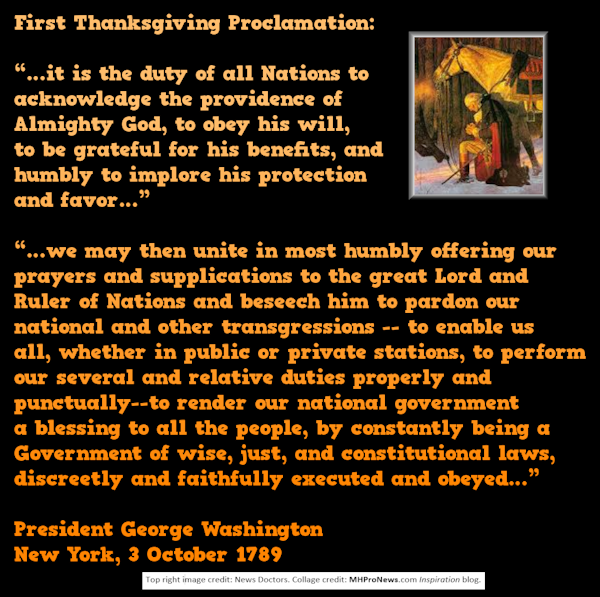
Look at modern, oil-rich Venezuela. They have a great climate and many natural resources. But socialism has wrecked that nation in roughly a decade. They are now moving towards a highly centralized power, and their nation’s authority threatens political or economic opponents.
Be thankful for America’s historic lessons. This nation wasn’t formed perfectly. But our ancestors learned from their mistakes and kept improving our society. Isn’t that the best that any of us can do?
Let’s not go backwards, and repeat the socialistic and other mistakes of the past. Let’s not forget the lessons of faith and freedom. Let’s learn, relearn and share the lessons of free enterprise vs. socialism.
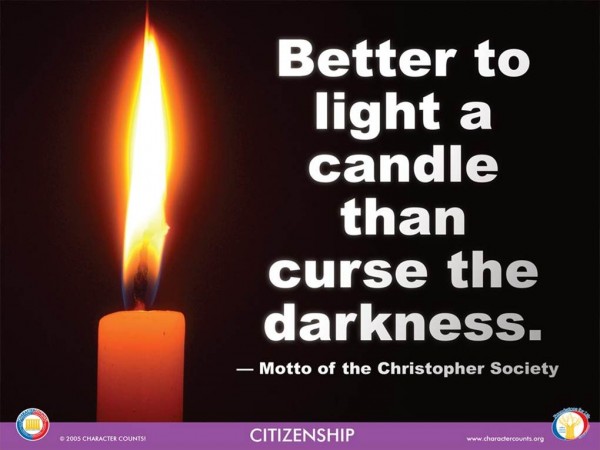
For that opportunity, we all ought to be thankful to the Creator. ##
(Download full Thanksgiving Proclamation PDF, at this link here.)

Submitted by L. A. “Tony” Kovach.
He was the prototype for American televangelists – Archbishop Fulton J. Sheen – who said that we are not only tempted by evil, but that we are also tempted to do good.
Through grace, evil is to be resisted. Through grace, those impulses or temptations to do good should be embraced.
“Why is it that any time we speak of temptation we always speak of temptation as something that inclines us to wrong. We have more temptations to become good than we do to become bad.” – Archbishop Fulton J. Sheen
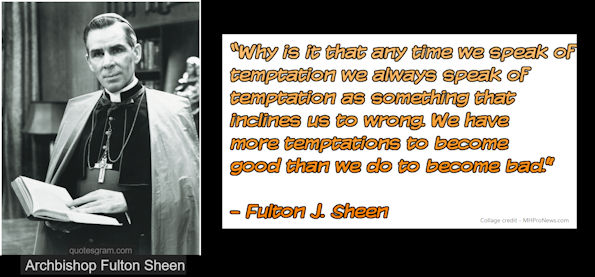

Submitted by
L. A. ‘Tony’ Kovach
A paradox is a seemingly contradictory statement that may reveal a truth. A paradox of freedom is that it is rarely, if ever, free.
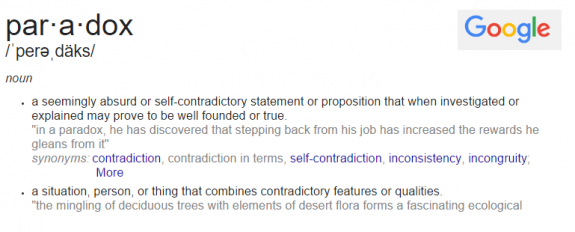
There are many forms of freedom that should be considered.
Do you love freedom? Do you want to protect and expand that freedom?
Threats to freedom often come from an abuse of “power.” So one way to maximize freedom is to keep power in check.
In the United States, our Declaration of Independence said that we our “endowed by our Creator” with certain “unalienable rights.” All of those rights – the freedoms noted or implied in the bullet points above – were designed to be enshrined and protected by our Constitution and the Bill of Rights.
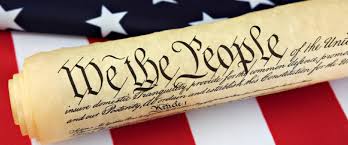
Knowing the Constitution was an imperfect creation of a compromise, the founders made it subject to legal amendment. That process was designed not to be easy, so that changes would come only from broad consensus.
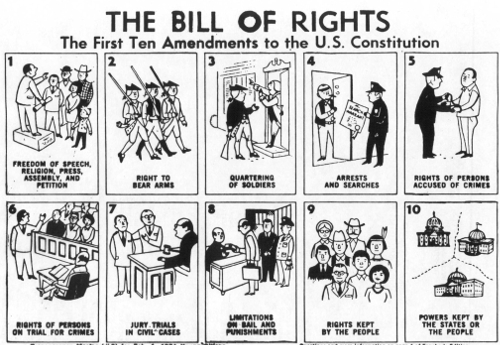
Among the ways that power was to be checked by Constitutionally limited government was division or “separation of powers.”
Inefficient?
Dictatorships and kingdoms may in theory be more efficient than constitutionally limited government. But that’s the point, to maximize freedom, the power of a rule needed to be checked.
Constitutionally limited federal power was meant to be a way to hobble the fast passage of actions, precisely to protect We the People, and the States, from the overreach of power by the federal branch of government.
All of this requires an informed and engaged electorate to work properly. That electorate had to be grounded in an understanding of freedom and justice.
Constitutionally Protected Freedom Under Assault
It would be easy to point to the last 7 years and say that the executive branch has been exceeding its authority. But the truth is that constitutionally limited government has been under assault for well over a century. It’s been done by Democrats and Republicans. The constitution is being violated by all three branches of the federal government.
That said, one presidential candidate – an attorney – is promising to pack her lower and Supreme Court appointees with judges who will back her vision of government. By contrast, Donald Trump is promising to appoint justices is the mold of the late Antonin Scalia. Originalists who would apply the original meaning of the law, instead of imposing their political view on the law.

If the law doesn’t apply to all equally, then one has injustice. Injustice leads to rebellion and anarchy. To be free, your rights and your property have to be protected.
How is it fair if you earn and work for something, and then a power greater than your own simply takes it away? Yet isn’t that what often happens through laws, as well as by criminal acts? These are the notions that Constitutionally limited government were supposed to protect against.
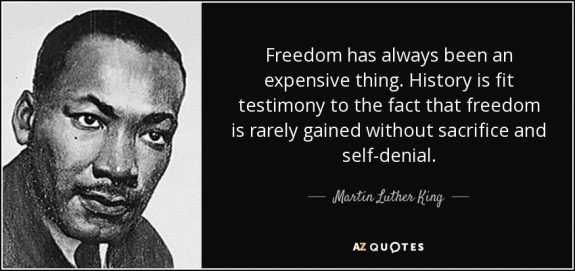
Freedom isn’t free. Each of us ought to work to understand freedom. To spread the understanding of freedom. To campaign, lobby, advocate and vote for freedom. The paradox of freedom is that it isn’t free, but it is worth working and struggling for as necessary. ##


To all those who have suffered, died – and for their loved ones – may their sacrifices not be forgotten.
 Submitted by L. A. ‘Tony’ Kovach
Submitted by L. A. ‘Tony’ Kovach
A True MH Story.
An independent contractor was working for a multi-state company (MSC). The Contractor did good work, the MSC’s president, key staff, plus rank and file praised him publicly and privately. A payment (bonus) – part of a written agreement – was coming due to the Contractor, a 5 figure one, which would be the first of many. The principle/CEO of the MSC decided not to pay, and threatened legal Consequences for the Consultant if he tried to collect.
As the MSC had attorneys and deep pockets, what was the Contractor to do? All direct appeals to the MSC were met with deaf ears.
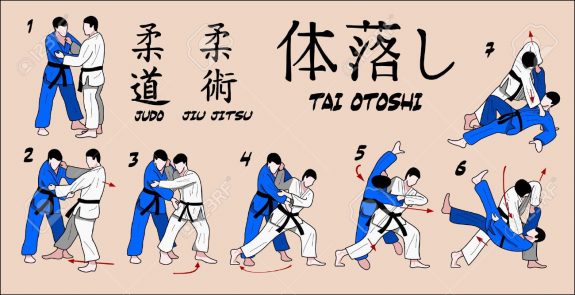
In sharing this story and what follows, I’m not taking sides. Nor is this story necessarily praising or condemning either party, both of whom I know personally.
With the odds stacked against the respected Contractor, he creatively decided to turn his disadvantages to his benefit. The Contractor interviewed some law firms, and because the Contractor had good records and could prove performance and good reviews from the MSC, he found an attorney willing to take his case on contingency.
First a demand letter, then the suit. After the normal pre-trial activities, after several months of depositions and related discovery, once the MSC realized they’d lose, they settled. The MSC paid more in attorneys fees, lost time – plus the settlement than the amount – far more than they tried to withhold from the Contractor. Plus, they obviously now felt they could no longer could turn to the Contractor for future, useful services.
The Contractor used jujitsu, turning the ‘stronger’ and ‘larger’ MSC’s “advantages” into disadvantages.
The lesson?
When you face a problem, step back. Think things through. Often you can turn the force of a challenge – or even an unjust attack – into an advantage. ##